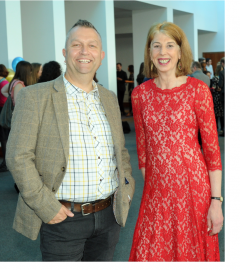The summer months can provide an opportunity to catch up on reading you may have earmarked but been too busy to look at. So, here is a roundup of the articles we have published in Insights since the spring – a smorgasbord of thought-provoking research, fresh opinions and inspiring case studies.
First up we recommend taking a look at the article by Lisa Schilhan, Christian Kaier and Karin Lackne who tackle academic search engine optimization (ASEO). This is important for researchers because the ‘relevance’ and ‘impact’ of research are measured, among other things, by counting the number of views, downloads and citations a publication has received, but processes must ensure research integrity takes precedence and require more sensitivity than conventional SEO for purely commercial purposes. The authors provide guidance on how to make scholarly articles more visible and how to avoid a range of mistakes that prevent researchers or search algorithms from identifying literature as relevant. We have adopted these tips at Insights!
Jaime A. Teixeira da Silva and Aceil Al-Khatib draw our attention to the ethical issues around copyright transfer. The lack of clear guidelines and the frequent inconsistencies in the definitions of authors have resulted in unethical authorship practices. For example, ghost authorship, which is when named persons on a paper take credit for the work of the real author. They not only outline the issues but offer practical solutions.
The mission of Insights is to encourage the exchange of ideas on scholarly communication, and so we always welcome authors who wish to respond to articles we have previously published. Peter Suber responded to Patrick Alexander’s article, published in November last year, about the open access (OA) policies at Harvard University. This response, in turn, resulted in a lively discussion on the Insight’s discussion board.
The transition to OA is resulting in a new focus on reporting the usage of open content, and so, Ronald Snijder’s article is a timely piece about his experiment comparing two widely used usage metrics – COUNTER Release 5 and Google Analytics (GA). The pace of the transition to OA, and the associated challenges, varies across disciplines as demonstrated by two recent articles. Mario Pagliaro offers a critical perspective on academic publishing in the chemical sciences and concludes that with the widespread uptake of OA publishing, research chemists will start to value the benefits of open scholarship including the sharing of educational resources. Kimberly Pendell and Ericka Kimball tackle the domain of applied research disciplines such as social work. They report that faculty are primarily engaged with traditional publishing models and are sceptical about OA journals. They conclude that applied practice disciplines need a broader conversation about how to better recognize research impact in the field.
The article by Véronique De Herde, Mattias Björnmalm and Toma Susi consider how adverse effects of the ‘publish or perish’ philosophy pressure early career researchers into practices that are deemed necessary to progress academic careers at the expense of improvements in research quality and culture.
Jeroen Bosman, Hans de Jonge, Bianca Kramer and Jeroen Sondervan look at how the breadth and depth of OA can advance in the Netherlands after 2020. Their ambitious agenda includes broadening the scope to include such as books, chapters, proceedings, preprints and textbooks. They also suggest more dimensions, including diamond open access, open metadata, open peer review and open licences.
Tasha Mellins-Cohen points out that pricing for journals is based on old print rates and associated with above-inflation price increases, a lack of transparency. She proposes that paywalled content is repriced based on a fixed fee per paywalled article and argues that such a nominal read fee would offer transparent pricing eliminating the opportunity for double-dipping.
Finally, a ‘must read’ for all of us interested in increasing diversity and inclusion is Heena Karavadra’s article about how the library at University of Leicester is building diverse library collections in collaboration with library users. With funding of only £1,000 the initiative is encouraging sustained reading for leisure amongst students and fostering a sense of community for new students.
Sadly, this year, we lost two admired and respected information professionals, and we were pleased to publish tributes to Albert Prior and Dan Tonkery.
Look out for two upcoming articles this month. Sarah Pittaway and Michelle Malomo will be discussing an original approach to reading and William H. Walter and Susanne Markgren tell us about how to minimize journal costs through title-by-title selection. We will be taking a short break from publishing in August but will return in September, starting with an article by Tom Shaw on how we can strive for success, happiness, fulfilment and impact!
Lorraine Estelle and Steve Sharp
Editors
UKSG Insights

